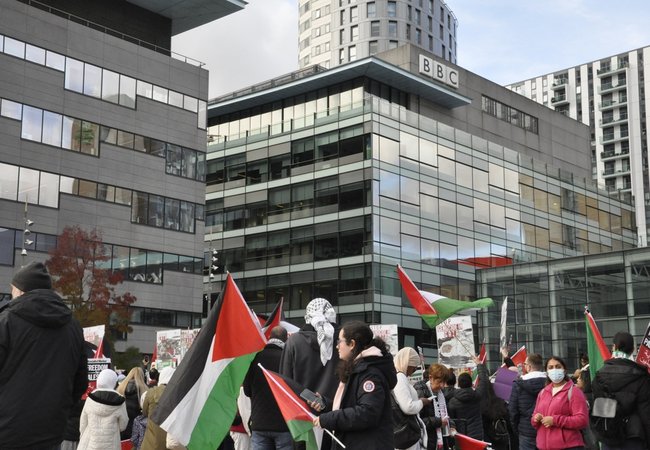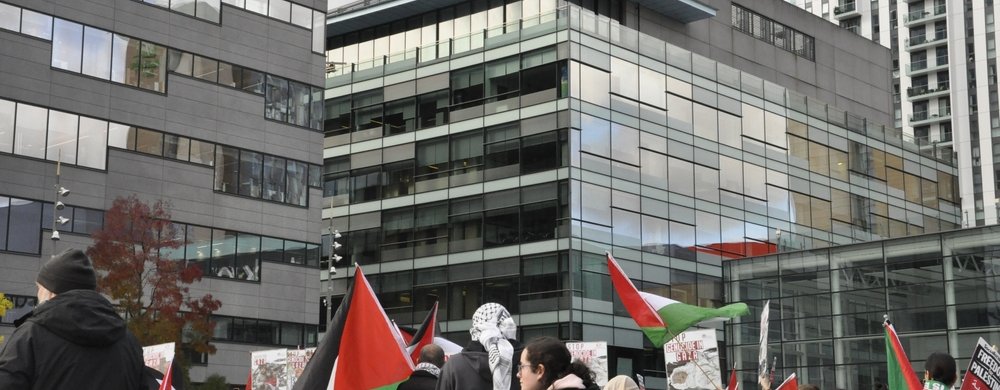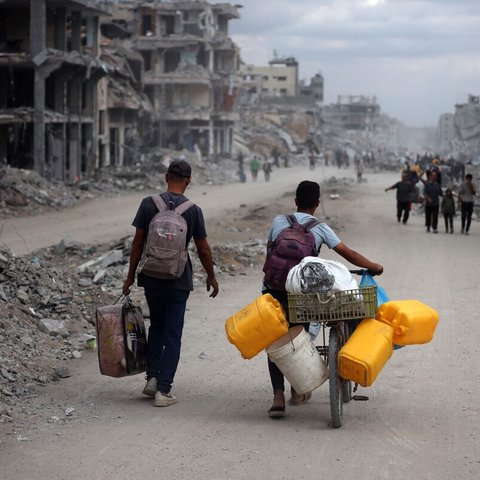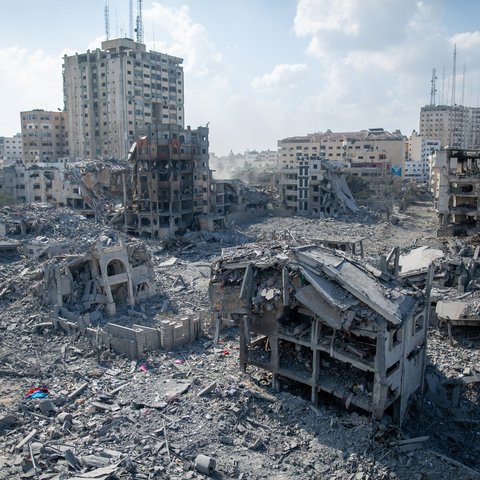Photo: Shutterstock


How do humanitarian crises become ‘hidden’?
If you’ve ever found yourself feeling disconnected from important issues, you’re not alone. Humanitarian crises globally are being hidden – and it’s harming the fight for justice.
Why don't we hear more about humanitarian crises?
That's why we need to break the silence
How our system hides humanitarian crises
“This war is unlike any we've experienced before. We are immersed in its full impact – countless displaced people, crippled communication networks, pervasive fear and imminent danger.”
Buthaina Sobh, Gaza, Palestine.
Buthaina's Story
Buthaina Sobh is from Gaza, Palestine. She’s the Executive Director of Wefaq Association for Women and Children Care and a mother of three. Buthaina opened up her home to provide shelter for displaced people. She also installed 30 private bathroom facilities that help safeguard and protect the dignity of women and girls in overcrowded shelters. "Women are enduring unimaginable hardships, resorting to open spaces for necessities”, she explains.
Buthaina is one of 2.5 million people in Gaza. For more than 18 months there’s been relentless bombing, destruction and conflict. Israel has deliberately displaced families, bombing schools, hospitals and whole neighbourhoods.
Israel continues to use food, water and medicine as weapons of war, leaving entire communities without basic necessities.
Since October 2023, Oxfam and partners have reached over 1.2 million people in Gaza with emergency food, cash support, clean water, sanitation, hygiene kits and essential items like blankets and sleeping mats.
How to combat the reporting gap
Radio Dabanga
Radio Dabanga is an independent, Sudanese news and information broadcaster founded to report on the Dafur crisis in 2008. During the current crisis in Sudan, Dabanga provides vital information - educating and informing people about peace and holding decision makers to account.
Moses Sawasawa
Moses Sawasawa is a journalist from Goma, DRC. His work captures the conflict and humanitarian crisis whilst centring the daily lives of the people he photographs.
Palestinian Filmmakers
Discover work from Palestinian filmmakers telling their own stories and experiences of life under Israeli occupation.
Ahmed Albasha for Gabreez / Oxfam
Munadhel's Story
Munadhel lives in Yemen. A decade of conflict in Yemen has left half the population without essentials. His family are also part of the Muhamasheen, a marginalised group facing widespread racial discrimination.
When his dad fell ill, Munadhel dropped out of school to take care of his family. At just 22, he's the sole provider. Using money and training from Oxfam and an EU funded project, Munadhel’s been able to defy the odds.
He finished his schooling. Bought a laptop. Funded his siblings' education – and got a motorbike to help his small business distributing food within his community.
As Munadhel looks forward, he says: “First, I want to complete my bachelor’s degree and then pursue a master’s and a Ph.D., Allah willing, if life and health permit. I aim to hold a high position, despite all the challenges we faced."
After ten years of war, Yemen remains one of the world’s largest humanitarian crises. Almost 4 million people have been displaced by conflict. Two out of every three people are in need of humanitarian aid – more than 21 million in total.
Oxfam has worked with partners and communities to reach 3 million people with clean water and cash assistance. Together, we’ve also rehabilitated water systems, supporting 125,000 people in rural areas. We also offer cash-for-work opportunities which enable women to earn an income while driving change in their communities.
Oxfam placed a replica Mark 84 2,000-pound bomb, used by the Israeli military in Gaza to devastating effect, opposite the British Parliament. Image: Andy Aitchison / Oxfam
Stop arming Israel
Join over 276,000 people to demand the UK government end their complicity in Israel's atrocities.
Watch Amina's story now
Amina has been living in a displacement camp in Somalia after being forced to leave her home due to the extreme drought. Her family were living as pastoralists in the countryside, until the drought caused them to lose nearly all of their 500 livestock.



